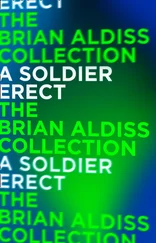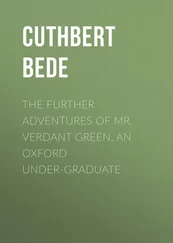In 1953 we sold the hotel. Eventually the shattering heat got us down, and in any case Rita and I had never meant to spend the rest of our days in Maracaibo. All the less so as I'd heard of a tremendous boom in Venezuelan Guiana, where a mountain of almost pure iron had been discovered. It was at the other end of the country, so we were up and away for Caracas, meaning to stop there a while and look into the situation.
One fine morning we set off in my huge green De Soto station wagon, crammed with baggage, and left behind five years of quiet happiness and many friends.
Once again I saw Caracas. But hadn't we hit on the wrong town?
At the end of Flamerich's term Perez Jiménez had named himself president of the republic; but even before that he had set about turning the colonial town of Caracas into a typical ultramodern capital. All this during a period of unheard-of cruelty, on the part both of the government and of the underground opposition. Caldera, who has been president since 1970, escaped from a shocking attempt on his life; a powerful bomb was thrown into the room where he was sleeping with his wife and child. By an absolute miracle not one of them was killed; and with wonderful coolness-no shrieks, no panic-he and his wife just went down on their knees to thank God for having saved their lives.
But in spite of all the difficulties he had to deal with during his dictatorship, Perez Jiménez entirely transformed Caracas, and a good many other things, too. The old road from Caracas to the Maiquetia airfield and the port of La Guaira was still there. But Perez Jiménez had built a magnificent and technically outstanding thruway that meant you could get from the town to the sea in less than a quarter of an hour, whereas it had taken two hours by the old road. In the Silencio district Perez jiménez ran up enormous buildings the size of those in New York. And he built an astonishing six-lane highway right through the city from one end to the other-not to mention the building of working- and middle-class complexes that were models of urbanism, and many other changes. All this meant millions and millions of dollars swirling about; and it meant a great deal of energy burst out in this country that had been dozing for hundreds of years. Foreign capital came flowing in, together with specialists of every kind. Life changed completely; immigration was wide open, and fresh blood came in, giving a positive beat to the country's new rhythm.
I took the opportunity of our stop in Caracas to get in touch with friends and to find out what had happened to Picolino. These last years I had regularly sent people to visit him and take him a little money. I saw a friend who had given him a small sum from me in 1952, a sum Picolino had wanted so he could settle in La Guaira, near the port. I'd often suggested that he should come live with us at Maracaibo, but every time he replied through his friends that Caracas was the only place with doctors. It seemed that he had almost recovered his speech and that his right arm more or less worked. But now nobody knew what had become of him. He had been seen creeping about the port of La Guaira, and then he had completely disappeared. Perhaps he had taken a ship back to France. I never learned; and I have always kicked myself for not having gone to Caracas earlier to persuade him to come to me in Maracaibo.
Everything was clear: if we couldn't find what we wanted in Venezuelan Guiana, where there was this terrific boom and where General Ravard had just dynamited the burgeoning forest and its swollen streams to prove they could be tamed, we would go back and settle in Caracas.
With the De Soto full of luggage, Rita and I drove to the capital of the state, Ciudad Bolivar, on the banks of the Orinoco. After eight years I found myself once more in that charming provincial town with its kindly, welcoming people.
We spent the night at a hotel, and we had scarcely sat down on the terrace for our morning coffee when a man stopped in front of us. A man of about fifty, tall, thin and sun-dried; he had a little straw hat on his head, and he screwed up his small eyes until they almost disappeared.
"Either I'm crazy or you're a Frenchman called Papillon," he said.
"You're not very discreet, buster. Suppose this lady here didn't know?"
"Excuse me. I was so surprised I didn't even notice I was talking like a fool."
"Say no more about it: sit down here, with us."
He was an old friend, Marcel B. We talked. He was quite amazed to see me in such good shape; he felt I had done well for myself. I told him it had mostly been luck, a great deal of luck; he didn't have to tell me, poor soul, that he had not made a go of it-his clothes did the telling. I asked him to lunch.
After a few glasses of Chilean wine he said, "Yes, Madame, although you see me like this, I was a fine upstanding guy when I was young-afraid of nothing. Why, after my first break from jail I reached Canada and joined the Canadian Mounted Police, no less! I might have stayed there all my life, but one day I had a fight, and the other guy fell right onto my knife. It's God's truth, Madame Papillon. This Canadian fell right onto my knife. You don't believe me, do you? Well, I knew the Canadian police wouldn't believe me either, so I made my getaway that very minute, and going by way of the United States, I reached Paris. I must have been sold by some bum or other, because they picked me up and sent me back to the clink. That's where I knew your husband: we were good friends."
"And what are you doing now, Marcel?"
"I grow tomatoes at Los Morichales."
"Do they do well?"
"Not very. Sometimes the clouds don't let the sun come through properly. You can't see it, but it sends down invisible rays that slay your tomatoes for you in a few hours."
"Christ! How come?"
"One of the mysteries of nature, man. I don't know anything about the cause, but the result, I know that all right."
"Are there many ex-cons here?"
"About twenty."
"Happy?"
"More or less."
"Is there anything you need?"
"Papi, I swear if you hadn't said that I wouldn't have asked for a thing. But I can tell you're not doing so badly-so excuse me, Madame, but I'm going to ask for something very important."
The thought flashed through my mind, God, don't let it cost too much, and then I said, "What do you need? Speak up, Marcel."
"A pair of trousers, a pair of shoes, a shirt and a tie."
"Come on: let's get into the car."
"That's yours? Well, by God, you have had luck."
"Yes, plenty of luck."
"When are you leaving?"
"Tonight."
"Pity. Otherwise you could have driven the bridal pair in your bus."
"What bridal pair?"
"Of course! I never told you the clothes were to go to the marriage of an ex-con."
"Do I know him?"
"Don't know. He's called Maturette."
I couldn't get over it! Maturette! The little fairy who had not only made it possible for us to escape from the Saint-Laurent-duMaroni hospital but had also traveled fifteen hundred miles with us in a boat on the open sea.
No question of leaving now. The next day we went to the wedding, where Maturette and a sweet little black girl were married. We could not do less than pay the bill and buy clothes for the three children they had produced before going to the altar. This was one of the few times I was sorry I had not been christened, because that kept me from being his best man.
Maturette lived in a poor district where the De Soto made a sensation, but still he owned a clean little brick house with a kitchen, a shower, and a dining room. He didn't tell me about his second break and I didn't tell him about mine. Just one reference to the past: "With a little more luck, we'd have been free ten years earlier."
"Yes, but our fates would have been different. I'm happy, Maturette; and you look pretty happy, too."
Читать дальше
Конец ознакомительного отрывка
Купить книгу











